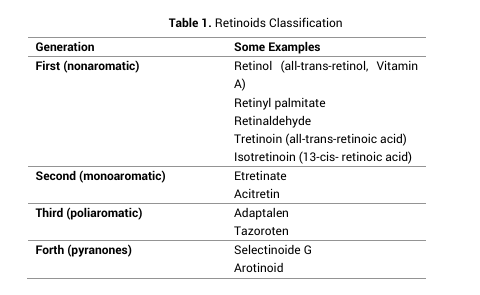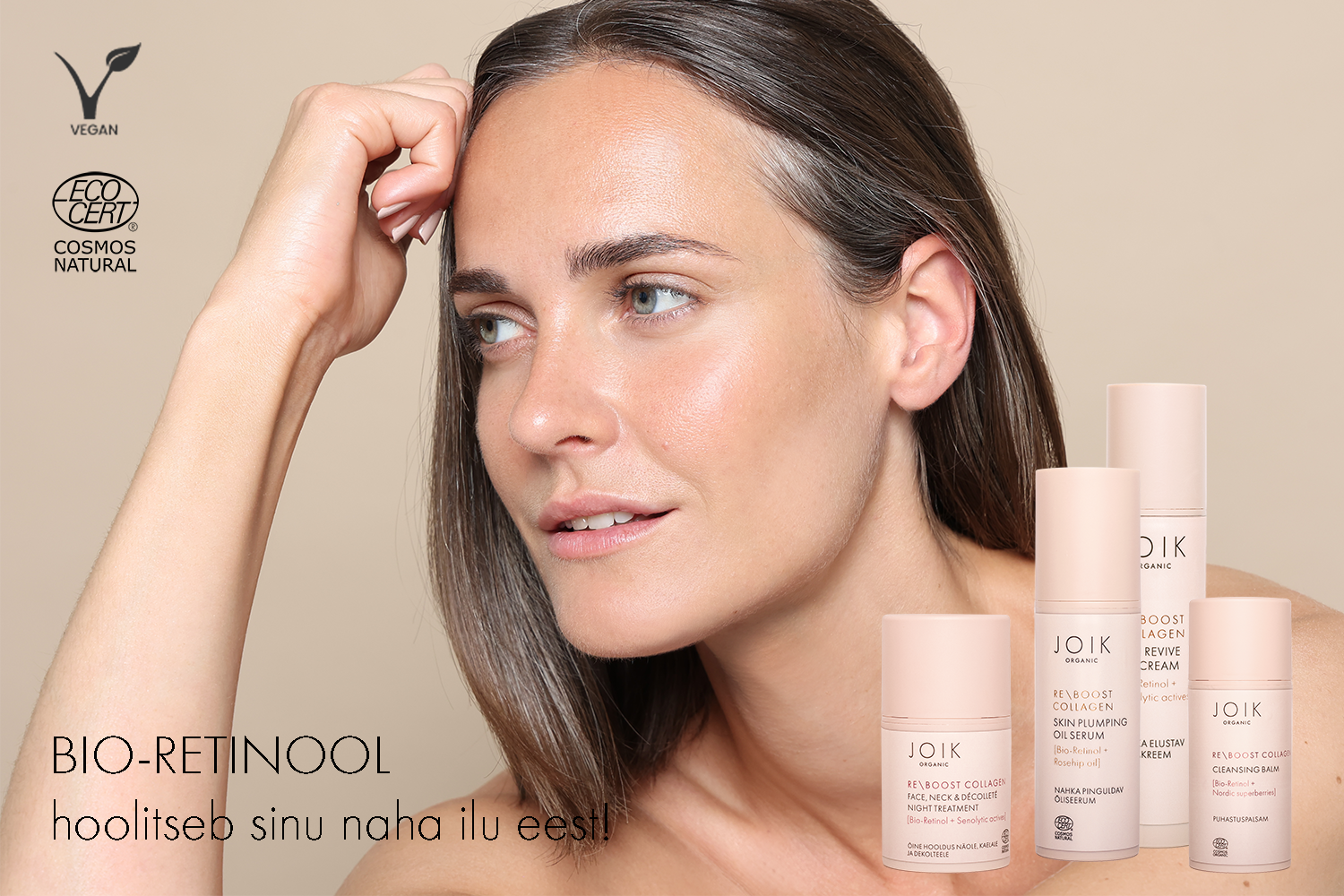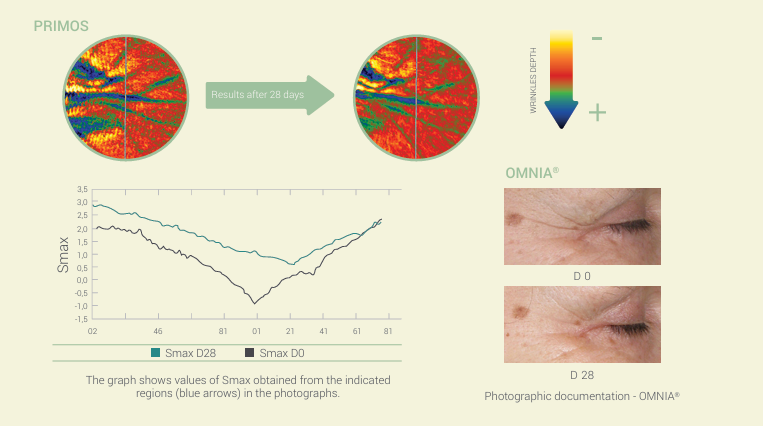Everything You Need to Know About Retinoids, Retinol, and Bio-Retinol
Anyone even slightly interested in the world of cosmetics has probably heard of retinol. Especially if you’re interested in rejuvenating, skin-smoothing, and collagen-boosting cosmetics. Retinol is indeed one of the most effective ingredients on the market for achieving smooth and radiant skin. But what exactly are retinol, retinoids, and bio-retinol? Do we really know what they mean? Yes, it’s widely known that retinol is a beneficial ingredient in cosmetics, but what does it actually do? How does it affect the skin? What should you be aware of when using retinol-based products? Who is it suitable for, and who should avoid it? What are the side effects? What’s the difference between retinol and bio-retinol? We’ll attempt to answer all of these questions below.
Retinol or Retinoid
To put it simply, retinoids are a group of vitamin A derivatives used to treat various skin conditions. Retinoids include retinol and its synthetic forms. Let’s get a bit more precise:
Retinoids are a general term for a group of vitamin A derivatives, often including stronger forms such as tretinoin, adapalene, and tazarotene.
Retinol is one of the retinoids and is the mildest form of vitamin A. It is weaker than other retinoids and requires several changes in the skin before it becomes active.
Retinoids (other than retinol) are often available only by prescription, as their use requires medical supervision and they can cause stronger side effects. Retinoids are primarily used to treat acne and psoriasis.
Retinol, on the other hand, is not a prescription product and is used in many skincare products. It focuses on improving skin tone, fine lines, wrinkles, and hyperpigmentation.

Where Does Retinol Come From? Is It Safe?
Traditionally, retinol has been sourced from animal products like beef and chicken liver, eggs, and fish. However, cosmetic retinol is typically produced synthetically in laboratories to ensure product stability and effectiveness, meaning it does not come directly from natural sources.
While retinol offers many skin benefits, it also has its downsides. Using retinol can cause various side effects, especially if the skin is not accustomed to this active ingredient or if the concentration used is too high.
Common side effects include:
- Skin irritation: redness, itching, dryness, flaking
- Unpleasant burning sensation
- Sun sensitivity: retinol can make the skin more sensitive to sunlight, increasing the risk of sunburn
- Temporary acne flare-ups
- Changes in skin texture
- Some individuals may be hypersensitive to retinol, which can lead to severe irritation and inflammation

Retinol side effects are so common that they have their own name: “retinoid dermatitis.” Because of these potential issues, starting in November 2025, the European Union will ban the use of more than 0.3% retinol in cosmetic products.
What is Bio-Retinol and Why is it Better than Synthetic Retinol?
Fortunately, the modern cosmetics industry has advanced to the point where there is a powerful plant-based alternative to retinol: bio-retinol. To put it simply, bio-retinol mimics the effects of retinol in skincare but is gentler on the skin and completely free of unpleasant side effects. Bio-retinol is a safe, stable, plant-based alternative to retinoids for treating aging skin.
At the molecular level, bio-retinol doesn’t resemble traditional vitamin A derivatives. Although it lacks structural similarity to retinol, it functions similarly, meaning it effectively stimulates cell turnover and collagen production. This makes it an appealing option for those seeking the benefits of retinol without the associated irritation and side effects.
The Powerful Plant Bidens Pilosa
In JOIK’s new skincare products, we use bio-retinol derived from Bidens pilosa plant extract. This is a powerful new ingredient making waves in the world of natural cosmetics and is also suitable for COSMOS-certified products. Bidens pilosa, also known as “picao preto” is a species in the daisy family, mainly found in tropical regions of South America. It is also present along the western coast of Africa and in Europe, particularly on the Iberian Peninsula.

Bidens pilosa has numerous beneficial properties. In traditional folk medicine, it has been used for its anti-inflammatory and antibacterial qualities. It has reportedly been used to treat ulcers, lower high blood pressure, alleviate headaches, arthritis, diarrhea, and even relieve malaria symptoms.
This plant is gaining recognition for its versatility and effectiveness, particularly in skincare, thanks to its bio-retinol content.
Bidens Pilosa in Skincare
Bidens pilosa is a powerful antioxidant that contains phytanic acid, which activates retinoid receptors in the skin. This activation promotes the production of collagen and elastin, two structural proteins that provide the skin with structure, strength, and a youthful appearance. Specifically, elastin gives the skin elasticity, while collagen is responsible for holding everything together. What makes Bidens pilosa particularly beneficial is that it helps maintain the strength and elasticity of these two key proteins, keeping the skin firm without causing irritation.

While plant-based ingredients can occasionally irritate sensitive skin, the likelihood is much lower compared to synthetic alternatives. Additionally, bio-retinol doesn’t require the long and slow acclimatization process typical of retinol. Another distinguishing factor is that products containing bio-retinol can be used both in the morning and at night, as this ingredient is not photosensitive. This makes it safe for use on delicate areas like the skin around the eyes, providing a gentle yet effective anti-aging treatment.
Bidens Pilosa Bio-Retinol Product Promises
In recent years, Bidens pilosa has been thoroughly studied to enable its effective use in both medications and cosmetic products. So, what exactly does it do for our skin?
Bio-retinol derived from Bidens pilosa is highly effective in combating aging, photoaging, acne, psoriasis, and more. Here are its key benefits:
.
- Increases the production of type I and type IV collagen in the skin.
- Boosts elastin production in the skin.
- Soothes the skin and reduces inflammation.
- Helps brighten the skin.
- Helps regulate sebum (oil) production.
- Makes the skin firmer.
- Smooths wrinkles (28% less visible wrinkles after 42 days of use).
- Reduces skin roughness (36% less roughness after 42 days of use).
- Penetrates into the deeper layers of the skin within 4 hours.
- Suitable for use during pregnancy and breastfeeding (consult with your doctor beforehand).

These impressive claims demonstrate why Bidens pilosa is becoming a popular ingredient in skincare, offering a gentler alternative to traditional retinoids with fewer side effects.
Bio-retinol is included in almost all JOIK Organic Re-Boost Collagen series products (except the facial toner).
See the products from this series HERE
Used articles:
- How Does Retinol Work on the Skin?
- Retinol
- What’s the Difference Between Retinoid and Retinol?
- An expert guide to traditional & natural retinol
- Bidens Pilosa Is the Retinol Alternative You’re About to See Everywhere
- Is Bidens Pilosa The Next Big Retinol Alternative?
- Raw material manufacturer’s studies and materials
